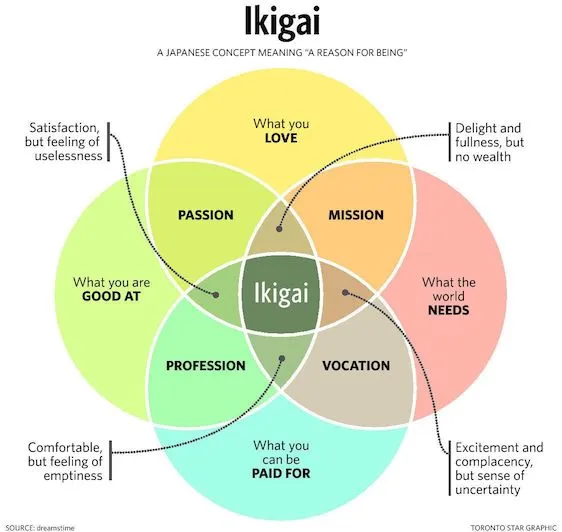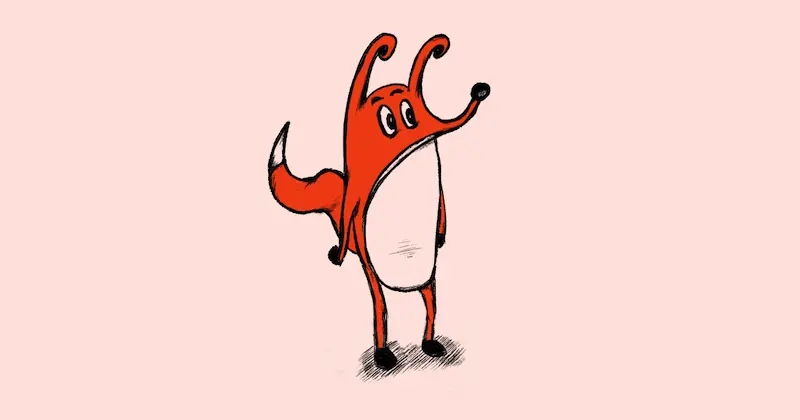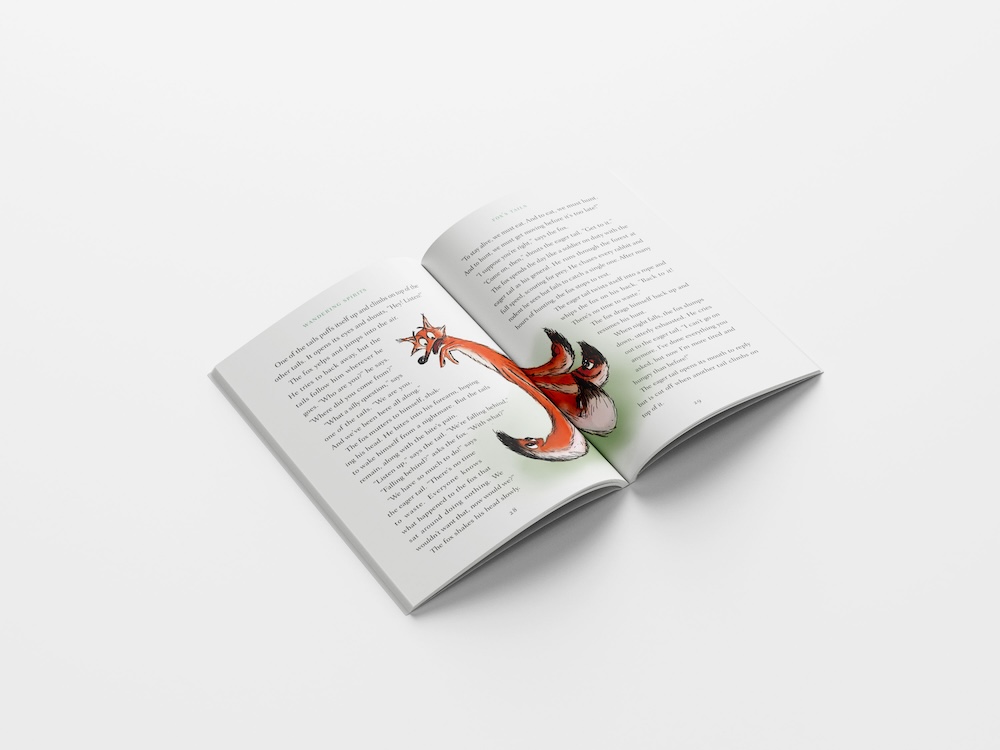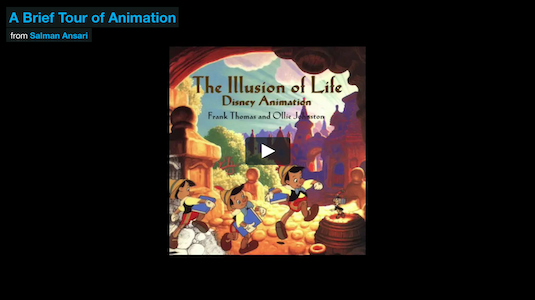The Polymath Playbook
You’ve likely heard the saying: “A jack of all trades is a master of none.” It warns against the futility of pursuing too many disciplines. Be a specialist, or you’ll be nothing.
But there’s more to the story. An extended version of the saying tells a different tale: “A jack of all trades is a master of none, but oftentimes better than a master of one.” With a subtle addition, its meaning becomes inverted. It touts the benefits of being a polymath (a.k.a. generalist), rather than admonishing them.
Why is the former so common, and the latter unknown?
The answer lies in modern society’s preference for specialization. We’ll explore its origin, the limits it places on workers’ freedoms, and how the polymath approach can offer a reprieve. Finally, I’ll share my own experiences and learnings exploring a multitude of pursuits.
Cost of Specialization
Following unprecedented growth during the industrial revolution, businesses faced more competition than ever before. In order to thrive, they sought new ways to operate more efficiently and productively. Division of labor was the solution they were looking for. By dividing the tasks needed to produce goods and services, individual workers could focus on specific tasks rather than developing a variety of expertise.
One important criteria to optimize for specialization is ensuring that workers stay in the same role for prolonged periods of time. This facilitates increased efficiency by reducing the need for training and allowing individuals to iteratively improve their ability to perform similar tasks. In exchange for their loyalty, the company offers its employees the security of long-term employment, along with additional incentives including tax-sheltered retirement accounts and access to healthcare.
In some parts of the world, these benefits come at a heavy cost to an individual’s freedom. In the United States for example, if you’re employed with a company, you get healthcare. Otherwise, you’re out of luck. Workers are often hesitant to switch jobs (let alone spend extended time without one) out of fear of losing their healthcare benefits. Another part of the problem is that the cost of healthcare in the U.S. is so high. A few days without healthcare and a single accident can push someone into financial ruin. As a result, many people stay at the same job year after year even if they’re unhappy.
The lack of freedom might be a worthy sacrifice in exchange for job security. But therein lies the problem: few companies can actually guarantee long-term stability. Many workers already face ambiguity with their job security due to the impending effects of automation. Now, with the tornado of change brought about by the COVID pandemic, the brittleness of even large corporations’ stability has become apparent.
“In order to keep up with the world of 2050, you will need not merely to invent new ideas and products – you will above all need to reinvent yourself again and again.” —Yuval Noah Harari
The key to surviving these waves of change is adaptability. Workers need to embrace a life of learning and self-evolution in order to thrive.
Luckily, we have a template for how to do just that: the polymath.
Polymath Advantage
What is a Polymath?
Despite the fact that the word has “math” in it, the term “polymath” has nothing to do with mathematics. A polymath is a person of wide-ranging knowledge and skills. Polymaths engage in extended learning across disparate fields, and apply their skills to connect ideas and solve problems in unique ways.
The key advantage that polymaths hold is their ability to thrive in a constantly changing environment. They develop mental models from different fields and apply them to solve problems in a unique way. This enables them to differentiate from their competition. Further, it creates opportunities for them to find truly meaningful work by pursuing their passions.
Differentiation
One of the challenges with specialization is that it can become more difficult over time to thrive in the workplace. This is a bit counter-intuitive. At first you might think the more ‘specialized’ you become, the more ‘rare’ your skillset is and thus, the better you are in terms of competition. There are two issues that arise as you continue down the path of linear specialization:
1. Over-specialization: Many PhD students spend years toiling to build highly specialized knowledge and expertise. But when they try to enter the workplace, they struggle to find work that meets their level of specialization, and are often forced to fall back to a career in academia.
2. Diminishing returns: The larger your team is, the more difficult it becomes to be the absolute best in a particular area. For example, it’s quite challenging to be the most technically proficient engineer in a given team. Even if you achieve this feat, it takes serious dedication to stay the most technically proficient in every technical area. Over time, the bar only grows higher, and competition only gets tougher.
Instead of trying to out-specialize your peers, you can build a unique combination of skills beyond your core expertise. Depending on your interests, you could focus on building great communication skills, design sensibilities, or leadership skills that help you elevate your impact and stand out from the crowd. By combining your unique interests and skills, you can unlock your highest leverage work.
Once you hit the diminishing returns of specialization (the limits of depth), it makes sense to explore other pursuits to differentiate yourself (the opportunities of breadth).
Mental Models
When you work in an industry for a while, you develop mental models based on its structures and dynamics. These ‘insider models’ are well-known within the industry, but invisible to those outside of it.
As you explore new areas, you can combine mental models in creative ways. Combinatory thinking allows you to solve problems in ways that few others can.
“In the 17th century, Johannes Kepler didn’t have a wealth of existing knowledge or technology to work with. There was no concept of gravity as a force, and he had no notion of momentum that keeps the planets in motion.
Analogies were all he had.
From research on magnets, Kepler began to understand why planets moved toward and away from the sun. By picturing how boats might move in a whirlpool, Kepler began to understand the elliptical orbit patterns of planets.”
—David Epstein, Range
The more pursuits you expose yourself to, the more models you have to work from, and the more you stand out from the competition.
Purpose
I believe the strongest reason polymaths become polymaths is that they simply don’t have a choice. The urge to pursue one’s inner passions is strong, and those blessed with a variety of them often find them difficult to ignore.
The polymath’s search for meaning and purpose through different pursuits can be related to the Japanese concept of Ikigai (“a reason for being”):

It can take many years or even decades before one sees any intersection between different circles. Yet a single taste can be intoxicating, and motivate a lifetime of pursuit.
What purpose could be greater than discovering purpose itself?
My Inner Fox
When I first began to study polymaths, I was excited to see a template for a life I didn’t know I was living. But when I started to embrace the polymath identity, my inner critics appeared. I wondered whether I’m even qualified to write about polymaths, let alone call myself one. After all, the the definition of a polymath is somewhat murky. I’ve spoken to a lot of peers who feel this same hesitation, and it’s been refreshing to connect with others who are taking a similar approach to life.
I also got a boost of confidence from a book called Hedgehog and the Fox by Isaiah Berlin. The book is a major source of inspiration for the generalist approach, and contrasts two proverbial animals: the specialist hedgehog versus the generalist fox.
I’ve always loved foxes, tracing back to the fox in my favorite book The Little Prince, and my favorite character to use in Nintendo’s Super Smash Brothers: Melee, Star Fox. I even designed my own fox character for my Quick Brown Fox newsletter:

And recently, another fox appeared in my life, this time in the fable Fox’s Tails in my book of modern fables, Wandering Spirits:

It seems my destiny as a polymath fox was written long ago…
I’ve been lucky to have held a lot of different roles and explored a lot of varied interests in my life. I’ve been a startup founder, software engineer, manager, teacher, public speaker, advisor, DJ and writer. Some of these are roles I’ve explored for decades, while others for just a year. Beyond that, I’ve also spent a lot of time on artistic hobbies like illustration and animation. In hindsight, there were a number of benefits I enjoyed as a result of combining different pursuits.
As a DJ, I had to learn to not just play my playlist, but to pay close attention to the audience and cater to them. Looking back, I think each one of my sets was a live lesson on how to find product-market fit.

Thanks to my obsession with animation, I learned to incorporate the principles of animation into the software I built. Later, when I was building digital healthcare experiences, I was able to use animation to bring the patients’ user experience to life. I brought a different perspective to the healthcare world (specifically: the idea that filling out a form could be fun).

Through extended teaching stints at software development schools, I built strong communication skills that paid dividends in future public speaking engagements as well as all my daily interactions with coworkers. As it turns out, explaining our ideas is crucial to our effectiveness, and teaching provides excellent practice for this skill.
The list goes on.
I didn’t do any of these things with a goal of being a polymath. I did them because I was drawn to them. It took many years before I started to see any benefits from mixing these pursuits.
Now that I’m intentionally embracing a polymath life, I hope to see the benefits compound even more. I’m excited to see how this plays out!
Freedom Isn’t Free
We’ve talked a lot about the benefits of the polymath lifestyle. I’d be remiss if I didn’t leave you with a few warnings about the obstacles.
One of the strange things about having multiple pursuits is that you never quite fit into social groups. I remember joining an iOS developers group where most of the members had been doing iOS development for more than a decade. Meanwhile, I had worked on countless platforms, in different roles across a variety of industries. We may have been in the same group, but we had lived completely different lives. It was hard to relate.
Ironically, the moment I started to feel like I was finally getting settled in a group, I’d get bored! I’d feel an urge to explore something new, or try a different angle. That’s the blessing and the curse of the polymath lifestyle. You’re always exploring, and rarely settling.
I believe it’s important to have at least one strong foundational pursuit (in my case it’s engineering). That way you can explore other areas while always having something to fall back on. You need to work at something for many years before you really start to hit the meaningful learnings. Make sure you’ve refined your mental models before moving on to try and combine them with new ones.
Another thing to watch out for: whenever you make a “life shift”, you’ll inevitably get some social pushback from the status police: “The minute you try to step out of your assigned box, they show up out of thin air and shove you back in. They serve as a constant reminder of your position and place, and how important it is to them that you stay directly in it.”
Society wants you to stay in your lane.
When we’re unsure if we’re ‘allowed’ to do something, we seek permission from others before we even try. We wait for the world to tell us it’s okay. I can tell you from experience that you’ll probably never get that permission.
In order to defy the social norms and unspoken rules, you’ll need to dig deep within yourself. As Emerson teaches, you’ll need to build self reliance, and give yourself permission.
The best place to start?
That thing you secretly want to do.
(What just came to mind? That might be a signal…)
The world seeks to label us, categorize us and pack us neatly into boxes.
But we are humans, not objects. We are viscous. We dance around the lines between solid and liquid.
We change and evolve. We ebb and flow. We shrink and grow.
Fluidity is the essence of our humanity.
“I live on Earth at present, and I don’t know what I am.
I know that I am not a category.
I am not a thing — a noun.
I seem to be a verb, an evolutionary process – an integral function of the universe.”
—R. Buckminster Fuller
Follow the rivers that flow within you.
Update: This essay really took off, reaching the top of HackerNews. Later, Tobi Lutke (CEO of Shopify) tweeted it, noting that “having range is really undervalued and underrated”, which sent it a bit viral on Twitter. It’s been touching to read so many kind messages from readers, and it warms my heart to know my words resonated so strongly. Thank you for reading and sharing my work, and thanks to Mae, Howard, Hrvoje and Ben for their feedback on a draft of this essay.
If you liked this essay, you might also enjoy my essay on Versioning Myself. After I went through a phase of burnout, I took a sabbatical. It led to an awakening of sorts, both intellectually and spiritually. Afterwards, friends told me I seemed like a new person. They called me ‘Salman 2.0’. This made me wonder: When, exactly, did I change ‘versions’? And what will ‘Salman 3.0’ be like?